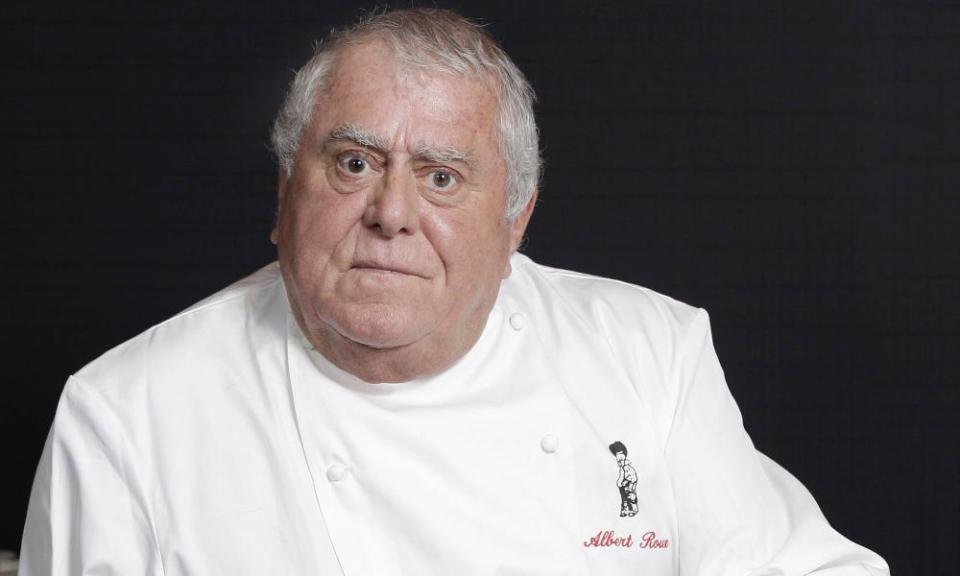Albert Roux's legacy goes far beyond his food

Albert Roux, who has died aged 85, did more to encourage and foster Britain’s restaurant sector than any other chef working in the UK. The roll-call of names that passed through the kitchens of his Mayfair restaurant, Le Gavroche, which he opened with his late brother Michel in 1967, is the classic who’s who of the culinary cheffing firmament. It includes Marco Pierre White, Gordon Ramsay, Pierre Koffmann, Phil Howard, Marcus Wareing and Rowley Leigh, each of whom in turn passed on what they had learned from Albert to so many others.
He was firmly in the business of unapologetic luxury. “We knew nothing of the British indifference to food,” he once told me, of his early years in Britain, “because we had only ever cooked for the rich.” Both brothers had arrived in the country from Paris, as private chefs for the aristocracy, Michel for the Rothschilds, Albert for the Cazalets. It was their employers’ money and contacts that enabled them to launch Le Gavroche.
The opening party guest list included Ava Gardner, Robert Redford and Charlie Chaplin, the latter being chauffeured back every night of the following week from his suite at the Savoy. He came for classics such as the gruyère-clad soufflé Suissesse and a lobster mousse with caviar and champagne butter sauce.
“When we opened up you couldn’t get things like poulet de bresse in this country,” Albert later recalled. “So my wife drove to France to smuggle it back in.” He was trying to cook French classics in a country where some of the ingredients were seemingly illegal.
Le Gavroche became the first restaurant in the UK to win one, then two, then in 1982, three Michelin stars. Michel would have been happy with that one success, but Albert wanted more. The sometimes tempestuous sibling relationship, eventually played out on a hilariously testy BBC cooking show, resulted in Michel heading to Bray to run the equally successful Waterside Inn.
Albert, as astute and irascible a businessman as he was a gifted chef, stayed in London, developing an empire that included brasseries, a traiteur and high-end butchery, once more expanding the culinary skills of the country’s cooks. At Le Gavroche that eye for business resulted in the set menu lunch, the price of which included half a bottle of very good wine from the extraordinary cellar he had worked tirelessly to build. Although the price has gone up over the years, the lunch has always been extremely good value and more importantly, guaranteed the dining room was full from first until last.
In 1991, aged 55, Albert handed over the restaurant to his son Michel Roux Jnr, who was smart enough to retain the spirit of the place, if not quite the same volume of double cream. Albert continued to encourage the next generation by helping his family launch the Roux scholarship competition, and lived an extremely good life. He ate his way around London’s restaurant and had a number of wives and lovers. The kind of grand, classical, butter-basted cooking he first brought to London, can be dismissed now as a desperate anachronism. But his legacy goes far beyond the richness of his food, to the richness and rigour of the culinary expertise he bestowed upon his adopted country.

 Yahoo Finance
Yahoo Finance 